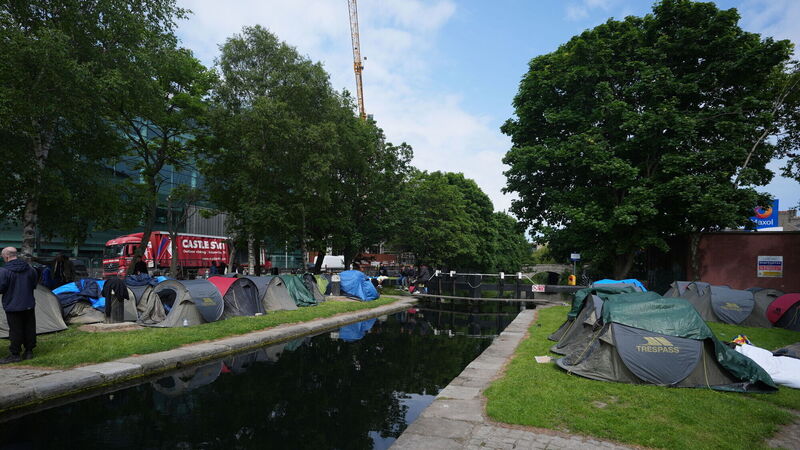'Trips and falls' were inevitable at migrant camp beside 'deceptively dangerous' Grand Canal

The health and safety evaluation by Waterways Ireland found there were “no washing or toilet facilities' at the encampment. File photo: Niall Carson/PA
A health and safety assessment of an encampment of asylum seekers along Dublin’s Grand Canal said “slips, trips, and falls” were inevitable beside deceptively dangerous water and that “tightly packed” tents, some with containers full of urine, could cause an outbreak of disease.
The safety evaluation said the number of tents could not even be counted accurately due to the “sheer volume” of them and the use of large tarpaulin sheets as cover from the elements.













